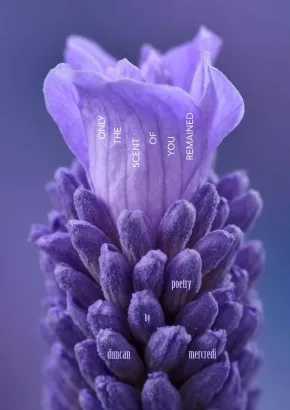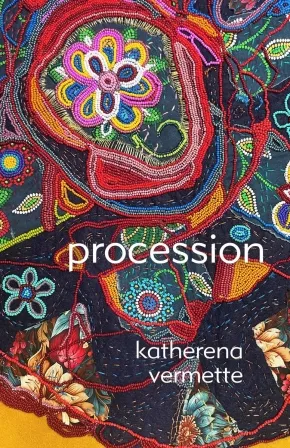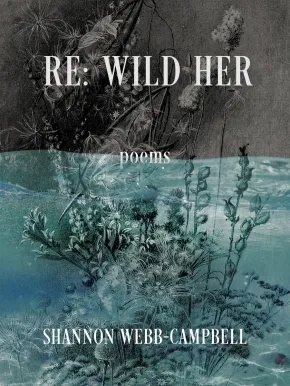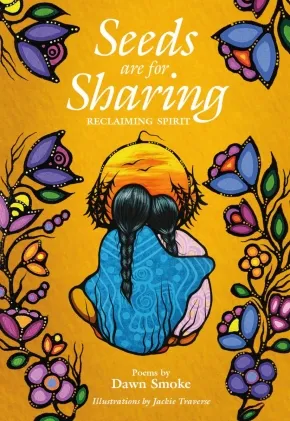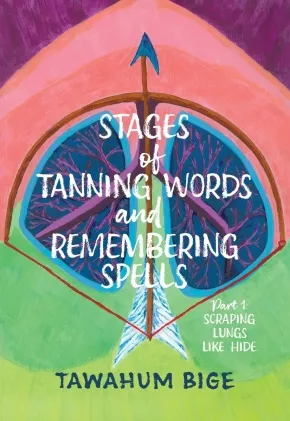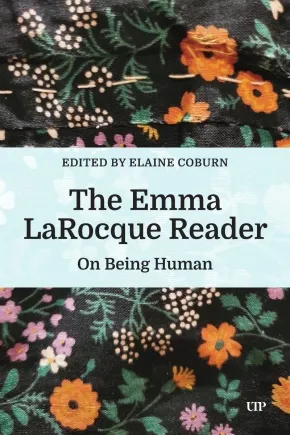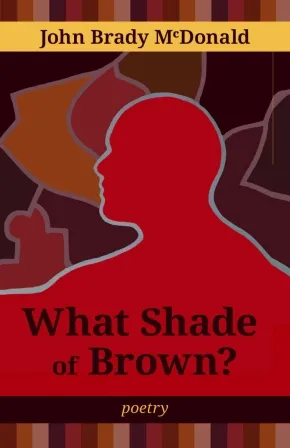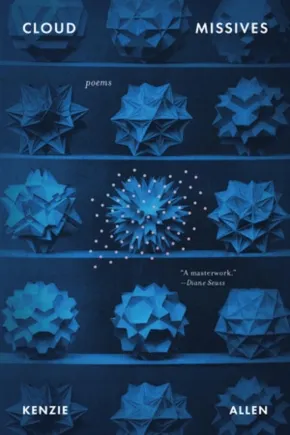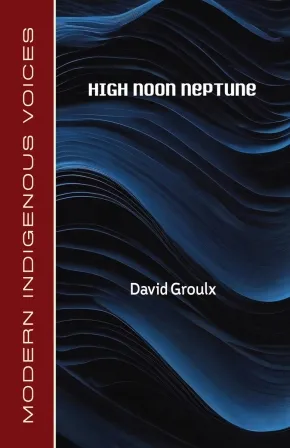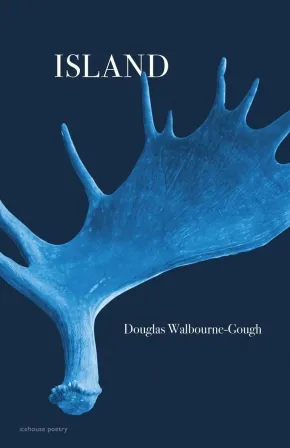
Poetry
16
-
30
of
187 Results;
Sort By
Go To
of 13
Only the Scent of You Remained
$24.95
Format:
Paperback
Text Content Territories:
Indigenous Canadian; First Nations; Cree (Nehiyawak); Métis;
Reading Level: N/A
ISBN / Barcode: 9781998779871
Synopsis:
Synopsis:
Duncan Mercredi was Winnipeg's Poet Laureate in 2021. In this frank, raw, and honest collection the poet chases down the river of who he is. Each bend, each stone, every waterfall, a sharing of self. Then the writings can be rolled up and when the time comes, the time that he leaves the place he calls home, they will be placed on the sacred fire. To return to where they came from. You are invited to walk with the author during intimate reflection and pause to remember the people who have been a part of his life and journey, the ones who influenced him, both good and bad. The paths taken, the roads travelled that led him to this city. As the wick burns the last of its wax we recognize its existence as the scent of smoke still remains long after the light goes out.
Additional Information
160 pages | 5.00" x 7.50" | Paperback
procession
$22.99
Format:
Paperback
Text Content Territories:
Indigenous Canadian; Métis;
Reading Level: N/A
ISBN / Barcode: 9781487013523
Synopsis:
Synopsis:
you are only here
to learn from those who came before
and make space
for those who come after
Procession: a line of people moving in the same direction; a formal ceremony or celebration, as in a wedding, a funeral, a religious parade. Bestseller and Governor General's Award-winner katherena vermette's third collection presents a series of poems reaching into what it means to be at once a descendant and a future ancestor, exploring the connections we have with one another and ourselves, amongst friends, and within families and Nations.
In frank, heartfelt poems that move through body sovereignty and ancestral dreams, and from '80s childhood nostalgia to welcoming one's own babies, vermette unreels the story of a child, a parent, and soon, an elder, living in a prairie place that has always existed, though looks much different to her now. This book is about being one small part of a large genealogy. A lineage is a line, and the procession, whether in celebration or in mourning, is ongoing. procession delves into what it means to make poems and to be an artist, to be born into a body, to carry it all, and, if you're very lucky, age.
be a good ancestor
be a good kid
Reviews
"The poems in procession are remarkable: spare but generous, both grounded and skillfully drawn. With her signature musicality, insight, and wit, vermette reminds us that we - like our bodies and the earth, like our histories and our shared, threatened future - are essentially, impossibly intertwined." -Chimwemwe Undi, Governor General's Award-winning author of Scientific Marvel?
Additional Information
112 pages | 5.50" x 8.50" | Paperback
Re: Wild Her
$22.95
Format:
Paperback
Text Content Territories:
Indigenous Canadian; First Nations; Mi'kmaq (Mi'gmaq);
Reading Level: N/A
ISBN / Barcode: 9781771669337
Synopsis:
Synopsis:
In nature, rewilding restores biodiversity and ecosystems. In this new collection from award-winning poet Shannon Webb-Campbell, it is a form of Indigenous resurgence and pleasure.
Drawing upon ecology, traditional knowledge, and sexuality, Re: Wild Her is a personal and poetic awakening. In these pages artistry and nature are intertwined, speaking to the sensual musings of lovers in Paris, driftwood and death cycles, and the rise of wild swimming and cold dipping. Throughout, reclaiming one’s divine femininity is celebrated as a powerful act of resistance and rejuvenation.
These “poem spells” each offer a different prism with which to rewild ourselves, answering the call: How does joy help us cope with the harsh realities and complexities of life? How does poetry help us move forward? Re: Wild Her is an invitation to catapult into the otherworldly, to dive with the muses, and to resubmerge ourselves in joy.
Reviews
“Shannon Webb-Campbell's nomad-like grazing on the treasures and pleasures of the world is sensuous, hungry, restless; the throat of this poet is wide open, expectant. In swallowing life and earth's marvels, she herself becomes them, and encourages the same of her reader.” —Shani Mootoo, author of Oh Witness Dey!
“These poems are wanderers, boldly straying across the globe (France, Cypress, Mexico, Cuba, California, Newfoundland) and in and out of the past, unafraid of 'strange creature sightings'—seeking them, in fact. They are poems hungry for magic and eager for transport, harkening to Elders and Buddhists, astrology and transatlantic flights, Two-Eyed Seeing and tarot. The transport sought isn’t the sort that offers escape from the world but one that pushes past the dominance of Enlightenment-style reason and opens a person up to mutuality and wonder.” —Sue Sinclair, author of Almost Beauty: New and Selected Poems
Additional Information
112 pages | 6.00" x 8.00" | Paperback
Seeds are for Sharing: Reclaiming Spirit
$20.99
Artists:
Format:
Paperback
Text Content Territories:
Indigenous Canadian; First Nations; Anishinaabeg; Ojibway; Haudenosaunee (Iroquois); Kanyen'keha:ka (Mohawk);
Reading Level: N/A
ISBN / Barcode: 9781778540592
Synopsis:
Synopsis:
"Never let anything or anyone stop you from following where your Spirit says it belongs. . ."
Spirit exists in everything on Mother Earth. If we are open to it, Spirit may guide us through even the darkest of moments.
In this genre-defying blend of poetry and story, Ojibway and Mohawk Elder Dawn Smoke shares all that lives within her heart, mind, and soul. As a young girl confronted with the anger and pain of being scooped from her birth family, Dawn bravely discovers her truth and a path towards healing. She is unwavering in her honesty, a protector of Mother Earth, and a fierce advocate against the oppression of Indigenous people.
Reclaiming what was taken is not an easy feat, yet in doing so, Dawn illuminates the Spirit all around us. This striking memoir, told in spoken word, speaks to the devastating realities of colonization and radiates with the resilience found within culture and community.
Additional Information
120 pages | 5.50" x 8.00" | Paperback
Something for the Dark
$19.95
Format:
Paperback
Text Content Territories:
Indigenous Canadian; First Nations; Cree (Nehiyawak);
Reading Level: N/A
ISBN / Barcode: 9781779400888
Synopsis:
Synopsis:
Something for the Dark centres Indigenous knowledge to probe the limits of what we know, confront the unknown, and reckon with our place in the world.
Randy Lundy’s newest collection of poetry—the final in a trilogy that began with Blackbird Song and continued with Field Notes for the Self—turns the poem to our relationships with the land, animals, and people, showing how our failures to see and live by the personhood of all other beings in the world, human and non-, leads inevitably to heartbreak.
As Lundy’s poems accumulate like snow on cedar, his recounting of experiences that transcend language invites the reader to bend their understanding and notice what was once unseen—how a red-winged blackbird clings to a swaying reed, how mist rises after rainfall, how dogs keen and howl, how fingers taste bitter after lighting sage, how hunger smarts, how liquor burns, and how the pain survivors carry is not merely their own.
Reviews
“Such longing! ‘These days I wrestle no angels. I wrestle / with words. And no one is saved.’ writes Randy Lundy. In Something for the Dark, he presents tâpwêwina—truths drawn from the hand dealt and the life lived. ‘Nothing is hidden,’ he suggests, if we take the time to observe from a distance and wait in silence.” — Rita Bouvier, author of a beautiful rebellion
Additional Information
96 pages | 5.51" x 8.50" | Paperback
Stages of Tanning Words and Remembering Spells: Part 1: Scraping Lungs Like Hide
$19.95
Format:
Paperback
Text Content Territories:
Indigenous Canadian; First Nations; Dene; Denesuline (Chipewyan); Lutsel K'e Dene First Nation ;
Reading Level: N/A
ISBN / Barcode: 9780889714601
Synopsis:
Synopsis:
In their second poetry collection, Tawahum Bige explores belonging and voice of a Two-Spirit Dene youth.
These poems are a stark plunge—an answer to how voice emerges for a young Two Spirit growing up in so-called “Surrey, BC,” far from his Łutselk'e Dene territories. The fundamental thrum in which vocal cords produce sound to whisper, cry, holler and laugh—these inner workings are made corporeal through moments of growth from childhood to young adulthood to show how the seeds sprouted for someone who needed to learn to express to find their path.
Additional Information
96 pages | 5.50" x 8.00" | 25 colour and b&w photographs | Paperback
SURVIVA: A Future Ancestral Field Guide
$57.50
Format:
Paperback
Text Content Territories:
Indigenous American;
ISBN / Barcode: 9781961814264
Synopsis:
Synopsis:
An ambitious, world-envisioning work of Indigenous futurism.
Since 2015—through a proliferation of forms including sculpture, regalia, film, photography, poetry, painting, and installation—acclaimed multimedia artist Cannupa Hanska Luger has been weaving together strands of a new myth. Collectively referred to as Future Ancestral Technologies, this sprawling series of interrelated works seeks to reimagine Indigenous life and culture in a postcolonial world where space exploration has reduced and reconfigured the earth’s population.
Part graphic novel, part art book, SURVIVA: A Future Ancestral Field Guide offers readers a view beneath, beyond, and between the lines of Luger's ever-expanding artistic universe. In this ecstatically hybrid work, Luger transforms a 1970s military survival guide through poetic redaction, speculative fiction, and iterative line drawing—deftly surfacing and disrupting the colonial subconscious that haunts this vexed source text. An epic and timely meditation on planetary life in the midst of transformation, SURVIVA boldly presents an earth-based, demilitarized futuredream that foregrounds Indigenous knowledge as critical to humanity’s survival
SURVIVA is the first title from Aora Books, a publishing imprint dedicated to exploring transformational thought and culture that transcends borders, disciplines, and traditions. Rooted in an ethos of polyvocality and planetary consciousness, Aora publishes works that forge bold connections across time, place, ideas, and beings often seen as separate.
Reviews
"SURVIVA offers Indigenous wisdom for a shared future built on ancestral knowledge in radical relation. This is a survival guide like none other." —Candice Hopkins, curator of the Forge Project
"SURVIVA boldly reimagines our conceptions of time and history, challenging our collective narratives and pushing us to rethink the art of survival through a lens of transformation."—Hank Willis Thomas, artist and cofounder of For Freedoms
"Cannupa Hanska Luger has created a wondrous book of survivance, a story to carry in pocket and study at every opportunity. At once a dystopia (earth is near destroyed) and a postcolonial fantasy (the colonizers abandon the planet for good), SURVIVA is a work of artistic brilliance that draws our attention to the simultaneity of ruins and futures. Rich with dreampower and evocation, these pages illustrate the mysteries of space-time, the dissolution of boundaries, and the relational universe described by Indigenous quantum mechanics. Read carefully, SURVIVA has the power to bend time itself, lifting us from past and present into futures innumerable."—Philip J. Deloria, Leverett Saltonstall Professor of History at Harvard University and author of Playing Indian
Additional Information
162 pages | 5.44" x 8.31" | original line drawings & ecopoetic fragments - reminiscent of 1970s diy photocopy culture | Paperback
The Emma LaRocque Reader: On Being Human
$39.95
Editors:
Format:
Paperback
Text Content Territories:
Indigenous Canadian; Métis;
Reading Level: N/A
ISBN / Barcode: 9781487551889
Synopsis:
Synopsis:
Emma LaRocque was born in 1949 in Lac La Biche into a Cree-speaking Métis family. She grew up in a one-room, kerosene-lit log cabin built by her father. At the age of nine, she fought her parents to attend school, where she encountered English and the colonizer’s harmful stereotypes of Indigenous peoples. Confronting the contradictions of colonialism sparked her journey as a writer and scholar, as she sought to understand the dissonance between her identity and the world around her.
The Emma LaRocque Reader is a comprehensive collection of her most significant writings, poetry and prose, offering an intimate window into the mind of one of Canada’s foremost Indigenous scholars. Through her work, LaRocque provides profound insights into the intersections of colonialism, sexism, and racism in Canada, while also critically celebrating the beauty of her community and culture. In the afterword, she reflects on fifty years of challenging the colonial enterprise. A vital contribution to postcolonial literature, The Emma LaRocque Reader intertwines the personal and the political to explore what it means to be human, offering a powerful testament to Indigenous resistance, resilience, and vision.
This collection brings together the works of Métis scholar Emma LaRocque, offering a half-century of her poetry and prose, and shedding new light on Canada, colonialism, and Indigenous resistance.
Educator Information
Chapters
Foreword by Armand Ruffo
Preface by Elaine Coburn
Acknowledgments by Emma LaRocque
Acknowledgments of Permissions to Reprint
Introduction by Elaine Coburn
1975 A Personal Essay on Poverty (Excerpt from Defeathering the Indian)
1983 The Métis in English Canadian Literature
1988 On the Ethics of Publishing Historical Documents
1989 Racism Runs through Canadian Society
1990 Preface: Here Are Our Voices: Who Will Hear?
1990 Geese (poem)
1990 Nostalgia (poem)
1990 “Progress” (poem)
1990 The Red in Winter (poem)
1990 Incongruence (poem)
1990 Loneliness (poem)
1990 Beggar (poem)
1990 Tides, Towns, and Trains
1992 My Hometown, Northern Canada, South Africa (poem)
1993 Violence in Aboriginal Communities
1994 Long Way from Home (poem)
1996 The Colonization of a Native Woman Scholar
1996 When the Other Is Me: Native Writers Confronting Canadian Literature
2001 Native Identity and the Métis: Otehpayimsuak Peoples
2001 From the Land to the Classroom
2004 When the Wild West Is Me
2006 Sweeping (poem)
2006 Sources of Inspiration: The Birth of "For the Love of Words": Aboriginal Writers of Canada
2007 Métis and Feminist
2009 Reflections on Cultural Continuity through Aboriginal Women’s Writings
2010 Native Writers Reconstruct: Pushing Paradigms
2013 For the Love of Place – Not Just Any Place: Selected Métis Writings
2015 “Resist No Longer”: Reflections on Resistance Writing and Teaching
2016 Contemporary Métis Literature: Resistance, Roots, Innovation
2016 Colonialism Lived
2017 Powerlines (poem)
2022 Wehsakehcha, Comics, Shakespeare, and the Dictionary
2023 Afterword
Index
Additional Information
348 pages | 6.00" x 9.00" | Paperback
The Idea of an Entire Life: Poems
$25.00
Format:
Hardcover
Text Content Territories:
Indigenous Canadian; First Nations; Cree (Nehiyawak); Woodland Cree; Woods Cree; Driftpile First Nation;
Reading Level: N/A
ISBN / Barcode: 9780771014017
Synopsis:
Synopsis:
Daring and vulnerable, this is the highly anticipated new collection from Griffin Poetry Prize winner Billy-Ray Belcourt.
In The Idea of An Entire Life, Belcourt delivers an intimate examination of twenty-first-century anguish, love, queerness, and political possibility. Through lyric verse, sonnets, fieldnotes, and fragments, the poems, sometimes heart-breaking, sometimes slyly humorous, are always finely crafted, putting to use the autobiographical and philosophical style that has come to define Belcourt’s body of work. By its close, the collection makes the urgent argument that we are each our own little statues of grief and awe.
Reviews
"To read Billy-Ray Belcourt’s The Idea of An Enitre Life is to experience genre as a place between landscapes, but also beyond them: horizon as 'line break,' infrastructure as 'wound,' 'an image of a forest someone else/was supposed to know by heart.' These poems are achingly beautiful. Belcourt writes what’s already broken, breaking in real-time, 'in order to repair it.' How this new form might arrive, 'miraculously' but also diligently, an act of recuperation and courage that’s on-going, 'meandering' but also (always) 'incomplete,' becomes what happens when we read."—Bhanu Kapil
Additional Information
96 pages | 5.00" x 7.50" | Hardcover
Washing My Mother's Body: A Ceremony for Grief
$24.95
Artists:
Format:
Hardcover
Text Content Territories:
Indigenous American; Native American; Muscogee (Creek);
Reading Level: N/A
ISBN / Barcode: 9781984861368
Synopsis:
Synopsis:
A beautifully illustrated edition of Poet Laureate Joy Harjo’s poem “Washing My Mother’s Body,” which offers a way through grief when the loss appears unbearable.
As I wash my mother’s face, I tell her
how beautiful she is, how brave, how her beauty and bravery
live on in her grandchildren. Her face is relaxed, peaceful.
Her earth memory body has not left yet,
but when I see her the next day, embalmed and in the casket
in the funeral home, it will be gone.
Where does it go?
Through lyrical prose and evocative watercolor illustrations by award-winning Muscogee artist Dana Tiger, Washing My Mother’s Body explores the complexity of a daughter’s grief as she reflects on the joys and sorrows of her mother’s life. She lays her mother to rest in the landscape of her memory, honoring the hands that raised her, the body that protected her, and the legs that carried her mother through adversity.
Moving, comforting, and deeply emotional, Washing My Mother’s Body is a tender look at mother-daughter relationships, the complexity of grieving the loss of a parent, and the enduring love of those left behind.
Additional Information
80 pages | 5.79" x 7.81" | Hardcover
What Shade of Brown
$20.00
Format:
Paperback
Text Content Territories:
Indigenous Canadian; First Nations; Cree (Nehiyawak); Plains Cree; Muskeg Lake Cree Nation; Métis;
Reading Level: N/A
ISBN / Barcode: 9781998926282
Synopsis:
Synopsis:
Passionate poetry and prose exploring the experience of an Indigenous person who feels like a stranger in a strange land, not quite accepted because of his light skin but also undermined by a settler-colonial society. Lyrical and heartfelt, bewildered and shaken, the poet struggles to find a connection to his family and lost culture.
Additional Information
75 pages | 5.50" x 8.50" | Paperback
Barely Amazing: Selected Poems of Shane Koyczan
$27.40
Format:
Paperback
Text Content Territories:
Indigenous Canadian; First Nations;
Reading Level: N/A
ISBN / Barcode: 9780984503179
Synopsis:
Synopsis:
In this collection, Shane skillfully takes the readers on a trek through deserts of loneliness, labyrinths of loss, and meadows of healing. The landscapes of our emotions range from the perilous to the serene, and these poems become a companion, a confidant, a source of solace, and a survival guide for the reader.
Shane's unique voice weaves humor and storytelling into his verses. With levity as a setup for power, each poem promises to take you on a zipline of emotions, leaving you both laughing and reflecting on life's miracles. While the freefall through our emotions may at times feel like a hazard, Shane creates a place to land safely without having to sacrifice the impact created by their velocity. These works are flint and tinder, wrestling as a tag team against the cold and dark we sometimes find ourselves lost in.
The works contained within do not tell us where to dig for the buried treasure of our hearts… they remind us that the treasure does in fact exist, and they lay bare what is amazing about what our hearts can endure.
Additional Information
118 pages | 6.00" x 9.00" | Paperback
Cloud Missives
$22.95
Format:
Paperback
Text Content Territories:
Indigenous Canadian; First Nations; Haudenosaunee (Iroquois);
Reading Level: N/A
ISBN / Barcode: 9781959030607
Synopsis:
Synopsis:
Intimate, dissecting, and liberating, Cloud Missives is a poetry collection of excavation and renewal. Like an anthropologist, Kenzie Allen reveals a life from what endures after tragedies and acts of survival. Across four sections, poems explore pop culture—the stereotypes in Peter Pan, Indiana Jones, and beyond—fairy tales, myths, protests, and forgotten histories, before arriving at a dazzling series of love poems that deepen our understanding of romantic, platonic, and communal love.
Cloud Missives is an investigation, a manifestation, and a celebration: of the body, of what we make and remake, of the self, and of the heart. With care and deep attention, it asks what one can reimagine of Indigenous personhood in the wake of colonialism, what healing might look like when loving the world around you—and introduces readers to a profound new voice in poetry.
Reviews
"Cloud Missives is a promise, to the reader, the speaker, the poet, and every generation before and to come. A promise not just of what to expect from Allen’s career, but a promise that the future will look back on this collection, and the time in which it was written—hopefully—with as much skillful attention as Allen has"— Chicago Review of Books
"A master of poetic attention. . . . a collection worthy of the clouds."— Pittsburgh Post-Gazette
"Filled with poems as restless as they are carefully wrought."— The Rumpus
"Incredible. . . . evocative. . . . Kenzie Allen's first volume of poetry is a stunning consideration of constructing identity, finding love, and living life."— Shelf Awareness
"In rejecting the borders previously observed by cartoonish portraits of Indigenous peoples, Allen makes room for the love song... . .Within Cloud Missives, each poem is necessary…. Each a lyric towards a more possible future."— On the Seawall
"Kenzie Allen’s Cloud Missives renders an unchartable landscape, 'wide as a child’s face,' in poems that enact Indigenous autoethnography and a profoundly embodied recovery operation. These are poems of revelation and repair, twenty-first-century poems that extend the work of the lyric into the territory of 'elegy against elegy,' love songs written to drive out violence and exoticization masked as love, and poems that wake to the desire to awaken. Along the way, there is exhumation in all its forms, of pop culture signifiers, from Peter Pan’s Tiger Lily to Indiana Jones, and revivified archetypes, from the ghost of the British Empire to the Evil Queen, harpy, fanged siren. Most crucial is the disinterment of personal scars and the violence they represent, and ancestral bones, 'piled, piled, / piled; piled; PILED; PILED, / nameless, done in, / piled—piled—piled,' each twisted foot and chipped skull a clue to an origin story and 'a keyhole to let angels in,' and the indefatigable voice out. Allen has written a masterwork of self-reclamation and survival through love."— Diane Seuss, author of frank: sonnets and Modern Poetry
"With archeological care, Allen begins a poetic and meticulous examination of the layers of life. Often surprising, these poems 'know violence / like it made me—rage / like it rocked me to sleep.' Intensely scrutinized events that involve Native women are separated into strata to reveal a powerful self and a voice that seems to have been waiting beneath the pressure of years to, at long last, speak."— Heid E. Erdrich, author of Little Big Bully
"This incredible debut announces Kenzie Allen as an important voice in Native literature. Through impeccable craft, she explores themes of health and healing, Indigenous genealogy and identity, kinship and love. These poems are a ‘song against the song of our demise.’ May their missives travel far and wide; may their words bloom like sweetgrass."— Craig Santos Perez, author of from unincorporated territory
Additional Information
128 pages | 6.00" x 9.00" | Paperback
High Noon Neptune
$19.95
Format:
Paperback
Reading Level: N/A
ISBN / Barcode: 9781772312225
Synopsis:
Synopsis:
High Noon Neptune is a powerful poetry collection that delves into important issues of loss, love, class, and capitalism. Throughout this book, the reader is taken on a journey of survival, where the intersections of identity and oppression are explored with clarity and reverence. The poems shed light on the complexities of living in a society that is rife with discrimination and inequality, and the battles that individuals face to survive within these intersecting systems. This book fearlessly navigates through societal and personal struggles with a sharp wit and bold defiance. With each poem, David Groulx confronts and challenges the societal norms and structures that perpetuate injustice and inequality. High Noon Neptune offers a raw and unapologetic perspective on the realities of navigating life as a marginalized individual. This poetry collection is a powerful testament to the resilience and strength of those who refuse to be silenced and continue to fight for survival.
Educator & Series Information
This book is part of the Modern Indigenous Voices series.
Additional Information
88 pages | 5.50" x 8.50" | Paperback
Island
$22.00
Format:
Paperback
Text Content Territories:
Indigenous Canadian; First Nations; Mi'kmaq (Mi'gmaq);
Reading Level: N/A
ISBN / Barcode: 9781773103396
Synopsis:
Synopsis:
“Canada rejected our applications for enrolment in the Qalipu First Nation. Initially, I was relieved by the rejection. I’d watched my hometown divide itself — are you Mi′kmaq or settler? Mi′kmaq or not Mi′kmaq enough?”
Centred around the Newfoundland Mi'kmaq experience in the wake of the controversial Qalipu First Nation enrolment process, Island wades through the fracture and mistrust that continues to linger in many communities. In this new collection, Douglas Walbourne-Gough expands upon issues of identity and history that he introduced in Crow Gulch, offering a deeply personal and equally beautiful exploration of Mi'kmaw and Newfoundland identity.
Walbourne-Gough’s narrative poems trace the formation of identity, not through status documentation, but through its deeper roots in childhood memories, family, spirituality, and dreams. Throughout this collection, he approaches life in fragments — snuggling into his nan’s sealskin snowsuit, learning Mi'kmaq from an app, or the myriad of complex emotions that come with receiving a status card — and watches them transform into pieces of an everlasting puzzle. Island reckons with an often-ignored, yet persistent, effect of colonialism — fractured identities.
Additional Information
80 pages | 5.50" x 8.50" | Paperback
Sort By
Go To
of 13

